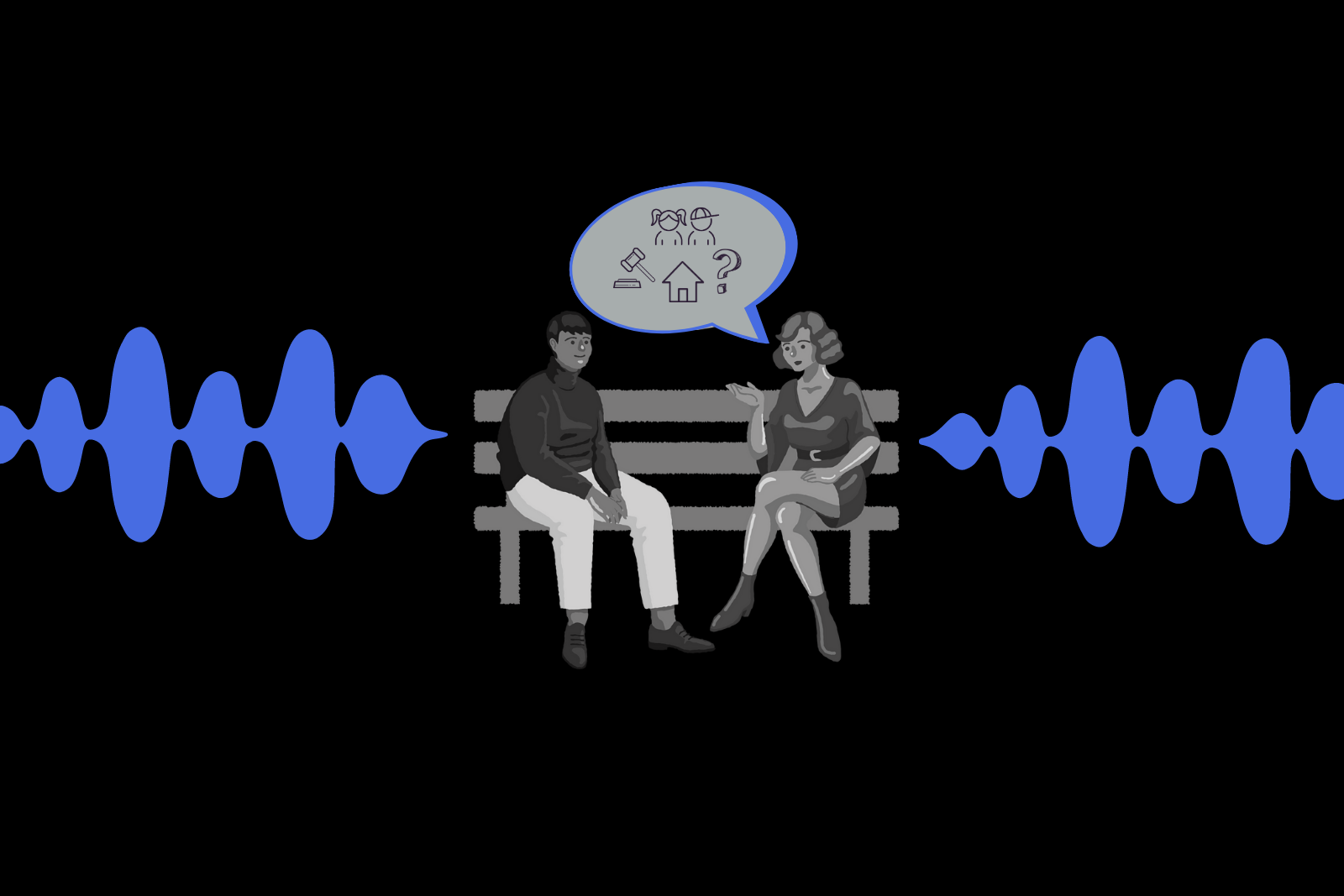by Ivy Law
Welcome to Ivy Law Group’s Podcast – The Family Five!
In this episode, we look at unhealth relationships vs healthy relationships, namely:
- What are the signs of an unhealthy relationship?
- When do you know if it’s time to leave the relationship?
- What’s the first thing you should do if you decide to leave?
Transcript: How do I know whether to leave my relationship or not?
JH: Hello and welcome to the Family Five Podcast with Ivy Law Group, where we tackle the tough family law issues in the time it takes you to drink your coffee. I’m Jessica Hamilton, I’m the Marketing Manager for Ivy Law Group, and I’m joined by my boss, Shane Neagle, who is the director of Ivy Law Group and the family lawyer extraordinaire. In this podcast, we will take a five in five approach, five questions in five minutes. Our aim is to keep the podcast light, easy to understand, and to give you some valuable information to take away with you.
*music*
JH: Shane, how are you today?
SN: I am awesome, and you Jessica, how are you?
JH: Very good. Alright, so sticking to the five minutes, let’s get straight into it. Today we’re talking about healthy relationships and unhealthy relationships. So Shane, how do you know if you’re in an unhealthy relationship?
SN: Okay, so we’ve talked about this before. We are not the arbiters of happiness, remember? There are so many different nuances to every different type of relationship. Now, the first test before we talk about some of the key positives and key negatives is that, I have this – this is Shane Neagle’s copyright this one – and it is: Am I being made to feel important? Is it good enough? Does this work for me?
JH: I like that.
SN: Yeah.
JH: Nice, simple and easy for people to understand.
SN: I had someone say (to me), and I think it was just in passing, that if you leave the room and you feel drained, there’s a real chance there’s a narcissist that’s just been in the room. So, that’s not going to apply to all the different issues that we’re going to talk about, but that’s certainly something that we have all possibly felt and realised, maybe this relationship is a bit problematic. Now, moving into things that are classic that are unhealthy is, where there’s control and dependence where the the person is saying, I can’t live without you. And then you can get the worst type of abusive scenarios, where they say they’re going to commit suicide if the person leave them. There’s also digital monitoring or what they call in the (united) states ‘clocking’. This is where they are watching your Instagram and social media and sending you messages all the time to check in on you. There’s also dishonesty. We’ve had those clients where they didn’t realise that their partner, husband, or wife had four properties in different states and never told them. Then there’s disrespect. That’s a classic one. In my own life, I had a partner that was very private and I’m a very open person. We talked about this, not that there’s disrespect going on, it’s just that we’re different people. That’s pretty nuanced. And that’s something again that goes back to the test (of asking yourself): Do I feel important? Is it good enough? Is this working for me? The other things that are common (in unhealthy relationships) is harassment, intimidation, and getting up to the higher end, the really concerning conduct, is when there is physical violence or sexual violence. What I always say is to just keep checking in with yourself and talking to your close friends and asking them about how they might see the relationship.
JH: So if someone’s checked in with themselves, they’ve asked themselves those three questions and they’ve decided that they want to leave, what’s the first thing they should do?
SN: With my three questions? Well, first, can you make sure you go see a counsellor for backup, because that’s (just) my test. But the three things that I recommend is to immediately change your security passwords on your telephone and on any email accounts. The second is to make sure that you have a plan in place and (especially) if your safety is at risk. And the third thing is to go and see a lawyer and get some really good advice.
JH: Okay? So protect your online privacy. Have a plan in place. Speak to a lawyer.
SN: That would be my three key things.
JH: And when someone’s speaking with a lawyer for the very first time, in a nutshell, what can they expect?
SN: You’re going to be overwhelmed (at first). There is so much information that goes into each different issue. And what I always say to clients is, I like to do it in a piecemeal manner. Let’s see if there are any big issues that need to be dealt with (first), like your safety, and if there are any assets at risk. So the other part that they’ll be expecting is that we’ll be asking for a lot of different types of information and sometimes they don’t have it. They need not to be concerned because there’s many ways to skin a cat in terms of getting the information that we will need.
JH: Alright, so we’re at time now. So just before we leave, we’ve obviously been speaking about some quite heavy topics, let’s try and lighten the mood a little bit. Give us your best joke.
SN: Okay. Lawyers really take the fun out of everything. Even Santa comes with a clause.
JH: *Laughs* Bye-bye.
SN: Thank you so much.
*music*
JH: Thanks for tuning in. Don’t forget to save us to your favorites wherever you listen to your podcast so that you don’t miss an episode. It’s important to note that the contents of this podcast are intended as a general guide to the subject matter. If you are looking for specific advice about your individual circumstances, then we would recommend getting in touch with one of our friendly family lawyers.
To see all episodes and subscribe to the Family Five Podcast, visit our podcast page here.


